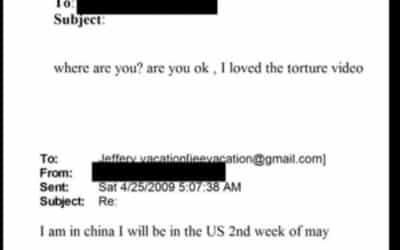This might be a new low.
The Story
The Washington Post obtained a transcript and a recording of a private conversation among high-ranking House Republicans, including House Speaker Paul Ryan. The portion of the conversation that has been released is mostly about Ukraine, but it also discusses Russia’s efforts to influence Ukrainian politics and US politics, albeit briefly.
Specifically, near the end of the conversation, House Majority Leader Kevin McCarthy says the following, as quoted by the Post.
“There’s two people I think Putin pays: Rohrabacher and Trump.”
Written like that, it seems like a flat accusation of collusion by a high-ranking politician, who generally defends Trump in public. Sounds like a huge story of at least hypocrisy, if nothing else.
The problem is that the Post also thankfully released the actual transcript. And in the transcript, that’s not how it appears at all. This is exactly what the transcript has, including relevant comments before and after (all ellipses and other notes are from the original):
McCarthy: [unintelligible]…I’ll GUARANTEE you that’s what it is.
[Unintelligible]
McCarthy: The Russians hacked the DNC and got the opp research that they had on Trump.
McCarthy: laughs
[Crosstalk]
[House Speaker Paul] Ryan: The Russian’s hacked the DNC…
McHenry: …to get oppo…
Ryan: …on Trump and like delivered it to…to who?
[Unintelligible]
McCarthy: There’s…there’s two people, I think, Putin pays: Rohrabacher and Trump…[laughter]…swear to God.
Ryan: This is an off the record…[laughter]…NO LEAKS…[laughter]…alright?!
[Laughter]
Ryan: This is how we know we’re a real family here.
So in the immediate context of this purportedly serious accusation, the conversation is interrupted by bouts of laughter five times, once before and four times after. The lawmakers seem to be having a grand time.
Now, in any normal situation, if you read a statement that is both preceded and promptly followed by laughter, you would probably assume the statement was a joke–or perhaps that the assembled audience was simultaneously watching funny cat videos on their phones.
But to The Washington Post, this precise same sequence of events is now being adduced as the latest damning piece of evidence to support a conclusion they’ve long since settled on. Not only is Trump clearly a puppet of Vladimir Putin, but the high-ranking Republican leaders know about it and are defending him anyway. The humanity!
If we assume no deliberate deception on the part of The Washington Post, then this is a textbook example of confirmation bias. They took a piece of information and then interpreted it in a way that conformed to, and indeed strengthened, their preconceived understanding of what is true–that Russia has covertly interfered in US politics and compromised Donald Trump.
To be fair, my immediate reaction was also an example of confirmation bias, just in the opposite direction. I dislike Trump for my own reasons, but I’m still not convinced of the Russia-hacked-the-DNC story, let alone the Trump-is-Putin’s-puppet narrative. I’m open to being persuaded; I just haven’t read anything convincing so far. So when I read an extreme assertion on these matters, skepticism is my default response. Upon further review, I would argue the context in this particular case favors this less alarmist interpretation.
Of course, The Washington Post could go a long ways toward clearing up the issue if they released the actual audio of the conversation, which is in their possession. Let’s hope that happens.






























